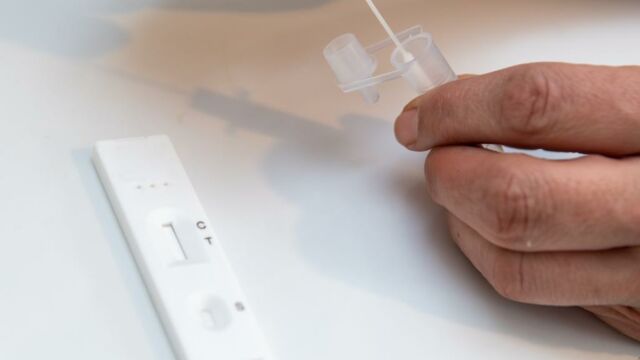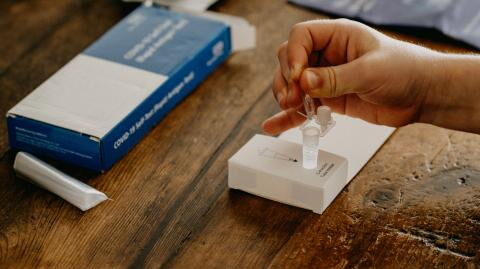As the number of Covid-19 infections reaches unprecedented levels in the UK (nearly 130,000 new cases recorded on Tuesday, 28 December), U.S. health authorities are warning that LFTs are less accurate in detecting the Omicron variant than previous strains of the coronavirus.
Discover our latest podcast
PCR test needed if in doubt
The U.S. Food and Drug Administration (FDA) said in a statement on Tuesday, December 28:
Preliminary data suggest that antigenic tests do detect the Omicron variant, but with reduced accuracy.
This basically means that results can be faulty—a negative test result can, in actuality, be a false negative.
While the FDA does not question the usefulness of these tests, it does recommend using a PCR test if there are symptoms or strong suspicion of Covid-19 infection. The health authority explained that:
If a person tests negative with an antigenic test, but is suspected of having Covid-19, for example by having symptoms or a high probability of infection due to exposure, follow-up with a molecular [PCR] test is important.
PCR or LFT, what is the difference?
In addition to their cost (antigenic tests are less expensive than a PCR test), these two monitoring tools have a major difference.
Indeed, LFTs will detect antigens present on the surface of the virus, whereas a PCR (or molecular) test looks for the genetic material of the virus. The former is already by nature less sensitive than the latter, but the Omicron variant would further accentuate this difference inefficiency.
But the advantage of LFTs remains in their rapidity in obtaining results (about fifteen minutes versus 24 hours on average for a PCR) and the fact that they can be performed at home without any problem via the home kits sold in pharmacies.















